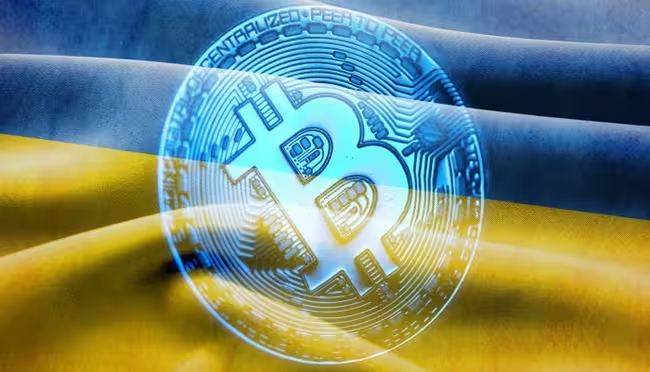Highlights:
- Ukraine may allow its central bank to hold Bitcoin and other crypto assets in its official reserves.
- Lawmakers submitted a bill that lets the National Bank decide if and when to use crypto in its reserves.
- A Bitcoin reserve could support Ukraine’s economy and align it with other countries using digital assets.
Ukrainian lawmakers have introduced a draft bill that could allow the country’s central bank to include cryptocurrencies in its official reserves. The proposal, registered as draft law No. 13356, was submitted to the unicameral parliament of Ukraine. The bill proposes an amendment to the current legislation on the National Bank of Ukraine. At the moment, the central bank is only able to accommodate gold and foreign currencies.
🇺🇦 UKRAINE JUST INTRODUCED A BILL TO ESTABLISH A STRATEGIC #BITCOIN RESERVE
WHAT A TIME TO BE ALIVE!!! pic.twitter.com/CTiQiAuO1X
— Vivek⚡️ (@Vivek4real_) June 11, 2025
In case of its adoption, the new law will allow the National Bank of Ukraine to possess virtual assets, including Bitcoin. However, the bank would decide when and how to use this option. Zheleznyak, a member of parliament, stated that the bill does not require the bank to buy crypto. Instead, it simply allows the bank to consider adding digital assets if needed. He emphasized that the bill gives the bank freedom to act when it sees value in doing so.
The law gives the central bank the authority but leaves the decision to its own judgment. Zheleznyak explained that this flexibility allows the bank to respond to changing economic conditions. He explained that the aim is to establish a legal channel that facilitates the autonomy of the bank. Although this does not mean immediate action, it prepares Ukraine to use digital assets in the future.
Reserve Proposal Could Position Ukraine Among Crypto-Forward Nations
The bill could help Ukraine join other countries that have explored using digital assets in their financial systems. Zheleznyak pointed out that nations like the United States, Switzerland, Brazil, and El Salvador have already considered or adopted such measures. He noted that Ukraine should also have the tools to take advantage of this trend. This proposal shows Ukraine’s effort to modernize its financial practices.
He further said that a crypto reserve would help sustain economic growth and stability. Through his Telegram channel, Zheleznyak said a Bitcoin reserve could help maintain macroeconomic balance. It could also give the country more options during uncertain times. He explained that the National Bank would decide on the amount, timing, and terms of any crypto asset purchases.
During a discussion with Kyrylo Khomiakov, Binance’s head for Central and Eastern Europe, Zheleznyak discussed the growing global interest in digital reserves. He said Ukraine should not be left behind while other countries move forward. This conversation highlighted the lawmakers’ intention to explore crypto reserves without forcing any action.
Crypto Bill Awaits Review as Broader Crypto Framework Develops
The Ukrainian parliament will now review the bill. Although it focuses on crypto in reserves, the proposal fits into a broader digital asset plan. A second bill, expected soon, will aim to create a full legal framework for crypto use in the country. This plan will also include clear rules for taxation.
Danylo Hetmantsev, head of the Finance Committee, said most parts of the new law are ready. He mentioned that only a few technical details remain under discussion. These include financial monitoring and related procedures. Hetmantsev expects the bill to move forward soon, helping Ukraine prepare for a modern digital economy.
Best Crypto Exchange
- Over 90 top cryptos to trade
- Regulated by top-tier entities
- User-friendly trading app
- 30+ million users
eToro is a multi-asset investment platform. The value of your investments may go up or down. Your capital is at risk. Don’t invest unless you’re prepared to lose all the money you invest. This is a high-risk investment, and you should not expect to be protected if something goes wrong.






